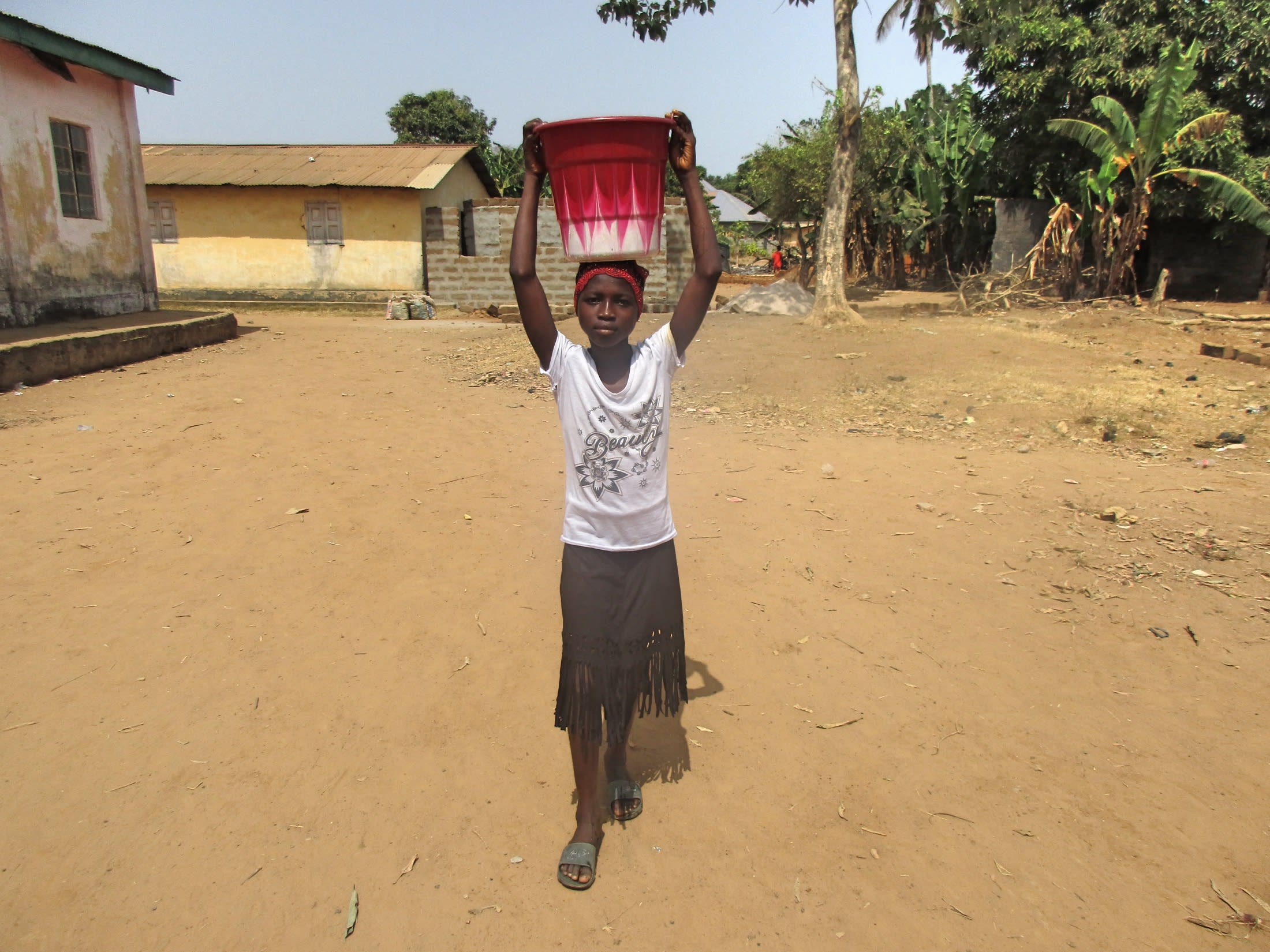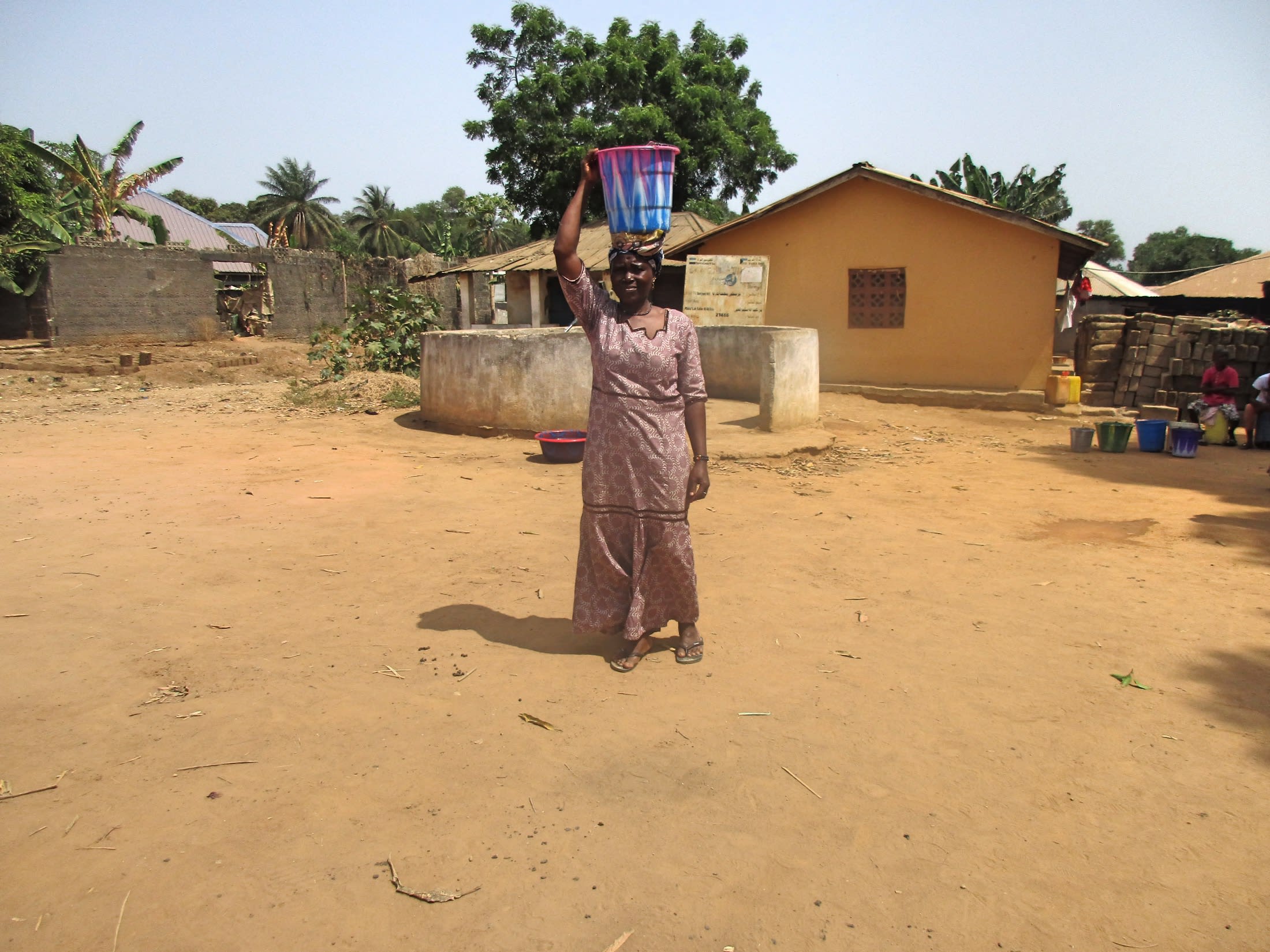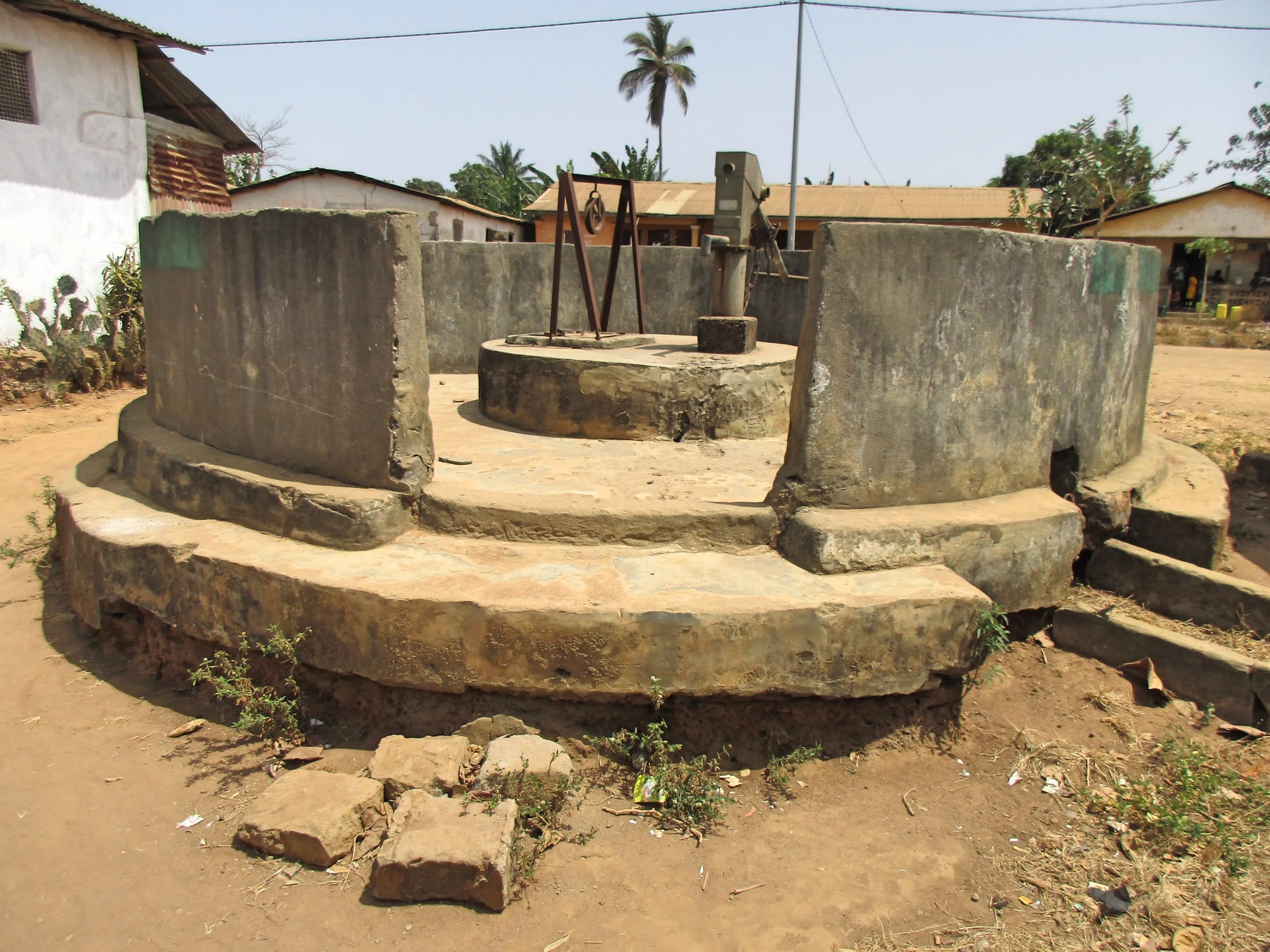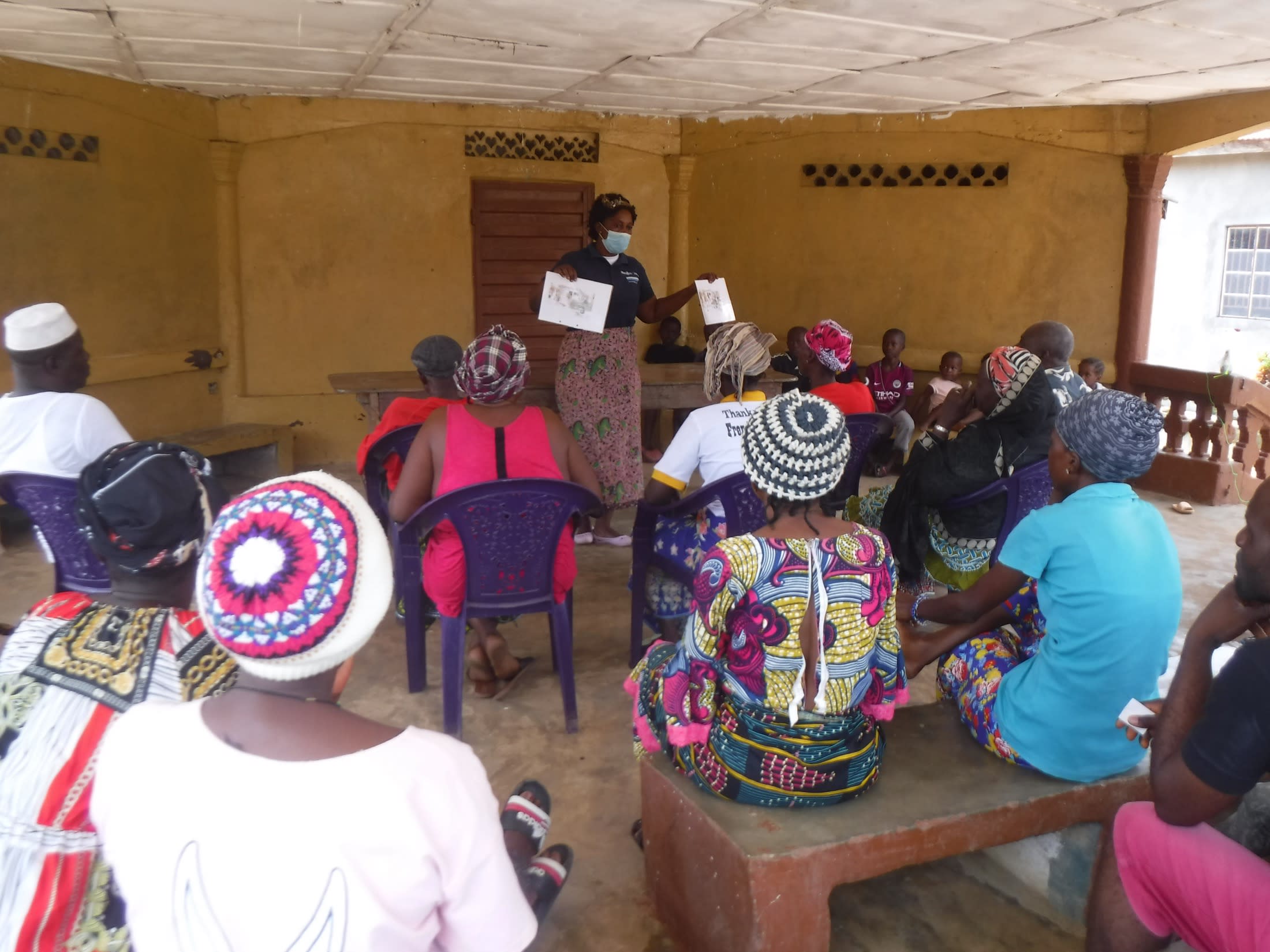In the predominantly Muslim community of Mahera, worshippers need water for their prayers five times each day, and yet finding that water is always a challenge. For the 137 people who live here, there is no convenient place or time to fetch water. Almost every time they go to the community's only functioning well (often passing several broken-down waterpoints on the way), they encounter long lines full of impatient people.
13-year-old Kadiatu K. (in the below photo carrying water) told our field officers that weekdays are her least favorite days, because that's when her parents tell her to fetch water. "Luckily, some of my schoolmates live next door to my house, and I always call them to walk with me to fetch water."

Kadiatu continued: "Our community is safe, but my parents still recommend that I travel with a small group on our way to the water well. It is not far, but the long lines and bullying from the older girls and boys delay me [in] getting water. The advantage to going as a crowd is if someone older wants to take advantage of us, all of my friends will resist and cause as much noise as possible until an elder intervenes."
Things weren't always so contentious, but the community's formerly reliable well has been broken since September 2021, and efforts to rehabilitate it have been unsuccessful.
Without water, Kadiatu's mother wouldn't be able to make her lunch until several hours after she gets home from school each day, given that making food needs water. "Early in the morning and in the afternoon, I am [at the well] with my containers trying to make sure sufficient water is at the home to be used for preparing food," Kadiatu said. "My mother told me if I want to have food immediately after school, then it is my responsibility to make sure there is water at the home at all times."
And the lack of water doesn't just make things difficult for Mahera's schoolgoing kids.
"Water is the most important resource that is used by every living thing throughout the day," said 50-year-old trader N'mah Jollah (in the below photo).

"As a woman and a housewife, my days are spent knee-deep in the challenges of looking for water to fulfill our household's daily requirements. [When] the high demand for water increases, so does the need for functional water points in the community."

"The well that used to serve the large portion of the community is the well at the market," N'mah explained. "When it was functional, people [would] travel from different parts of the community to fetch water, wash their potato leaves, cassava leaves, and other supplies that need cleaning before use. As a petty trader, I need water throughout the day, and going far from home to fetch water reduces my time spent preparing my foodstuffs."
Because of the lack of water and reduced morale amongst Mahera's people, proper hygiene and sanitation practices are not being observed. This, coupled with the lack of a protected water source, leads to high rates of hospitalizations due to cholera, typhoid, and dysentery.
With another source of water available, the water-queuing time will reduce. With less time wasted, people will be able to focus on more developmental activities than quarreling with neighbors, and kids will be able to spend their hours outside of school playing and studying.
Here’s what we’re going to do about it:
Well Rehabilitation
The well marked for this overhaul is dry for a few months every year and needs major work to supply adequate, clean water to the community year round. The pump will be removed, and a hand auger will be lowered inside and powered by a drill team. This hand auger will allow the team to drill several meters deeper to hit a sufficient water column that will ensure the well supplies water throughout all seasons.
As the team drills, casing will be installed, transforming the bottom of this hand-dug well into a borehole. PVC piping will connect this lower system directly to the pump, a construction that we know will also improve the quality of water.
Once this plan is implemented, everyone within the community will have access to safe drinking water in both quality and quantity, even through the dry months.
Hygiene and Sanitation Training
There will be hygiene and sanitation training sessions offered for three days in a row.
After our visit, the hygiene and sanitation trainer decided it would be best to teach community members how to build a tippy tap (a hand-washing station built with a jerrycan, string, and sticks). They will use these tippy taps for handwashing demonstrations, and will also teach about other tools like dish racks and the importance of properly penning in animals.
These trainings will also strengthen the water user committee that manages and maintains this well. They enforce proper behavior and report to us whenever they need our help solving a serious problem, like a pump breakdown.

 Borehole Well and Hand Pump
Borehole Well and Hand Pump



































